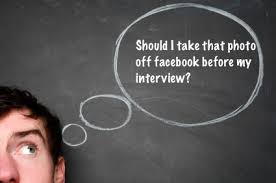How Important are the Questions in Reference Checks?
When hiring a new employee, there are a lot of unknowns. How exactly are you supposed to know this person will be a good hire? What precautions can you, as the employer, take prior to hiring a new person to your team? Although it’s impossible to make sure your candidate will be the perfect person for the job, there are steps that you can take to ensure that they will at least be a good fit. This includes a reference check. Reference checks can do a lot of different things for your organization. They can:
Ensure the candidate is honest
Evaluate the candidate’s skills
Gather an understanding of the candidate’s personality
All three of these points are quite different from each other, but they can all be done within a single reference check. This is why many recruiters and organizations find reference checks to be one of the most powerful tools in the hiring process. But still, reference checks sometimes miss the mark and don’t provide much help to recruiters. So what can be done to ensure a strong reference check? Simply put, the reference check questions are vital.
When searching for a new hire, it is important to think about what type of person will fit the best in your organization. The resumé indicates the person’s skill set in one way, but the reference check can get more insight into what the candidate can do for you and how they go about their business. Reference checks are as good as the questions you use within them. With RefLynk, you are able to fully customize the questions you are asking.
Without a strong set of reference check questions, a reference check can be deemed worthless. In order to get the most of the check, your questions need to be ones that illicit honest and useful answers. Rather than asking “What are Joe’s weaknesses?”, consider asking, “What are Joe’s weaknesses and how is he able to overcome them?”. Broad questions illicit broad answers, and broad answers don’t often tell you much about the candidate.
Another good option for reference check question is using the likert scale method. A likert scale allows the reference to answer a question or a statement on a scale of 1-5. An example could be, “How well does this candidate handle criticism on a scale of 1-5?”. This can be useful because of a few reasons:
It is quick and easy for the reference. They can complete the reference check quickly, and it does not entail a lot of work on their end.
The different rankings by the different references can be aggregated easily, so the results can be averaged to see the overall consensus on the candidate.
Ranking a candidate on a scale of 1-5 is easier to be truthful. It is often easier for a reference to use a number when considering a candidate than it is for them to say something negative about the person.
RefLynk has the ability to set up the reference check questions both ways mentioned above. Questions can either be open-ended, allowing for open responses, or they can be based on the likert scale model, allowing for rankings. Both are good tools in formulating strong reference check questions. They can be used for different types of questions, which can allow for a more thorough reference check overall.
If you are looking for a new reference check platform, and would like to learn more about the automated process of RefLynk, please consider signing up for a 1:1 demo here!




